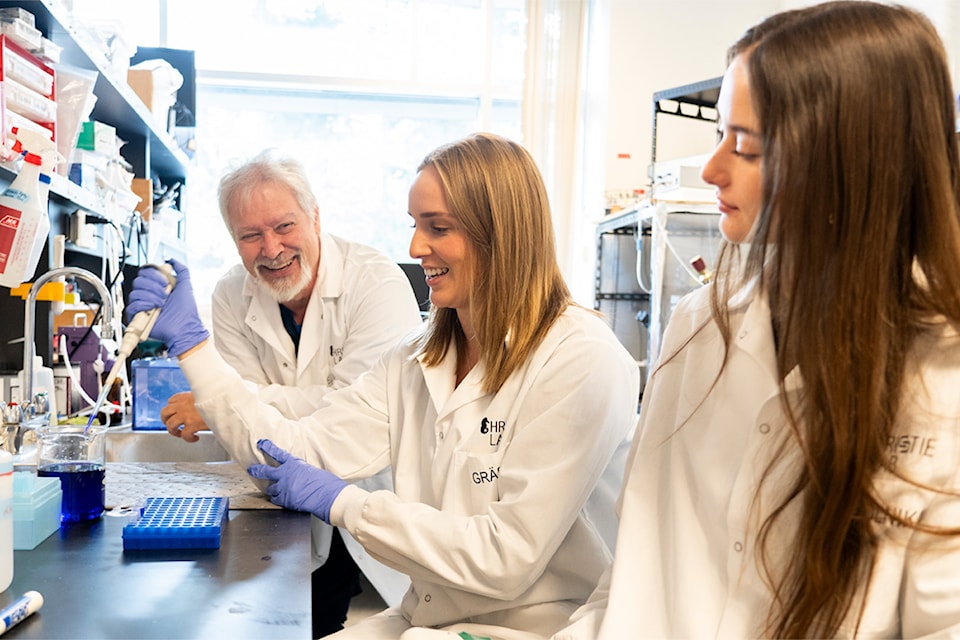Health
Psychedelics Show Promise in Healing Brain Injuries, Study Finds

Research from the University of Victoria (UVic) indicates that psychedelic compounds may offer new therapeutic avenues for individuals suffering from concussions and traumatic brain injuries. Annually, approximately 69 million people experience such injuries, often resulting from sports-related incidents, falls, road accidents, and interpersonal violence. Currently, effective treatment options are sparse, with no approved pharmacotherapies available for these conditions.
The study, conducted by the Christie Lab at UVic, explored the potential roles of two psychedelics: psilocybin, derived from specific mushrooms, and 5-methoxy-N, N-dimethyltryptamine (5-MeO-DMT), found in toad venom and certain plants. The findings were published in the journal Progress in Neuro-Psychopharmacology and Biological Psychiatry and involved collaboration with researchers, including Leah Mayo from the University of Calgary and Sandy Shultz from Vancouver Island University.
Psychedelics and Brain Injury Recovery
According to Josh Allen, a postdoctoral fellow in neuroscience at UVic, when an individual experiences a head injury, it triggers a series of reactions within the brain. One of these reactions is inflammation, which can initially assist in repairing brain tissue. However, prolonged inflammation may lead to significant long-term issues, such as deficits in learning and memory, as well as mental health disorders like depression and anxiety.
“These conditions share features such as impaired neuroplasticity that keep patients trapped in rigid loops of thought and behaviour,” Allen explained. The research suggests that classical psychedelics might have the ability to mitigate inflammation in the injured brain while promoting neuroplasticity. This enhancement could facilitate the brain’s capacity to reorganize and form new neural pathways, compensating for damaged connections.
Potential for Broader Impacts
Brian Christie, director of the UVic Concussion Lab, emphasized that classical psychedelics could play a dual role. “They have the potential to reduce inflammation in an injured brain while also increasing neuroplasticity and helping the brain to reorganize,” he stated. Christie also noted that these compounds may help prevent the onset of psychiatric disorders frequently associated with brain injuries.
By reactivating windows of plasticity and inducing expanded states of consciousness, psychedelics may reduce the likelihood of developing conditions such as depression and anxiety, offering new pathways to recovery for those affected by brain injuries.
Despite the promising findings, researchers highlight the necessity for further studies to fully understand how psychedelics influence brain injuries. Factors such as age, sex, and pre-existing health conditions could significantly impact the safety and efficacy of these treatments. The study received funding from the Canadian Institutes of Health Research, underscoring the growing interest in the potential of psychedelics in medical science.
As this area of research evolves, it could pave the way for innovative treatment options for millions suffering from the debilitating effects of brain injuries.
-

 Science3 months ago
Science3 months agoToyoake City Proposes Daily Two-Hour Smartphone Use Limit
-

 Top Stories3 months ago
Top Stories3 months agoPedestrian Fatally Injured in Esquimalt Collision on August 14
-

 Health3 months ago
Health3 months agoB.C. Review Reveals Urgent Need for Rare-Disease Drug Reforms
-

 Technology3 months ago
Technology3 months agoDark Adventure Game “Bye Sweet Carole” Set for October Release
-

 World3 months ago
World3 months agoJimmy Lai’s Defense Challenges Charges Under National Security Law
-

 Lifestyle3 months ago
Lifestyle3 months agoVictoria’s Pop-Up Shop Shines Light on B.C.’s Wolf Cull
-

 Technology3 months ago
Technology3 months agoKonami Revives Iconic Metal Gear Solid Delta Ahead of Release
-

 Technology3 months ago
Technology3 months agoApple Expands Self-Service Repair Program to Canada
-

 Technology3 months ago
Technology3 months agoSnapmaker U1 Color 3D Printer Redefines Speed and Sustainability
-

 Technology3 months ago
Technology3 months agoAION Folding Knife: Redefining EDC Design with Premium Materials
-

 Business3 months ago
Business3 months agoGordon Murray Automotive Unveils S1 LM and Le Mans GTR at Monterey
-

 Technology3 months ago
Technology3 months agoSolve Today’s Wordle Challenge: Hints and Answer for August 19









